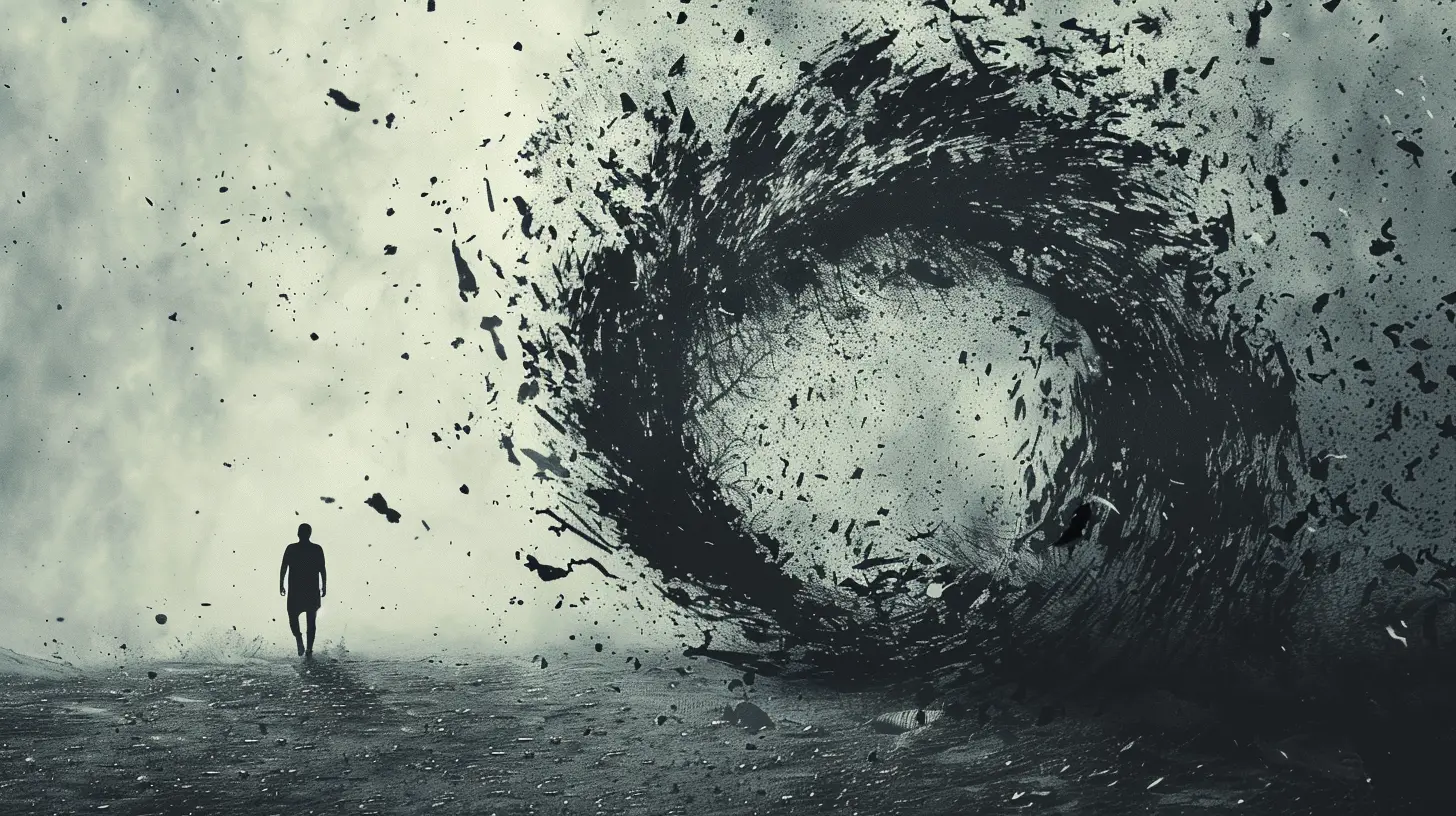Vicarious Trauma: When Helping Others Takes a Toll
5 June 2025
When you spend your days helping others navigate chaos, pain, and trauma, it's easy to forget one simple truth—you’re human too. You feel. You absorb. You carry. That’s where vicarious trauma sneaks in, like an invisible weight riding shotgun in your life. It doesn’t ask for permission, it just shows up.
In this article, we're diving into what vicarious trauma really is, how it creeps into the lives of caregivers, and—most importantly—how to recognize its signs and protect yourself without compromising your compassion.
What Is Vicarious Trauma?
Let’s break it down. Vicarious trauma, also known as secondary traumatic stress, happens when you’re regularly exposed to other people’s traumatic experiences. You listen to their stories, carry their pain, and slowly, unknowingly, it begins to change you.This type of trauma isn't reserved just for therapists. It affects social workers, nurses, doctors, first responders, teachers, volunteers—honestly, anyone who walks alongside others through emotionally intense moments. Even journalists covering tragedies can get hit with it.
Think of it like standing too close to a campfire. You’re not on fire, but you still smell like smoke afterward.
How Is It Different From Burnout or Compassion Fatigue?
Great question. These terms often get tossed around like they’re interchangeable, but they’re not quite the same.- Burnout is a result of chronic workplace stress. It’s about exhaustion, cynicism, and feeling ineffective.
- Compassion fatigue is more emotional. It’s the cost of caring too much for too long.
- Vicarious trauma? It’s deeper. It’s not just tiredness—it’s a shift in your worldview. The things you hear, see, or read seep into your thoughts and change how you feel about safety, trust, and even humanity itself.
In short, burnout is a fire, compassion fatigue is the smoke, but vicarious trauma? That’s the ashes left behind.
Who Is at Risk?
Honestly—anyone who cares.But more specifically:
- Therapists and Counselors – You hold space for others’ pain every single day.
- Social Workers – You navigate heartbreaking stories, often without seeing closure.
- Medical Professionals – You witness suffering that never leaves your mind.
- Emergency Responders – You’re the first on the scene, absorbing trauma in real-time.
- Caregivers – Whether it’s your profession or a personal role, you pour from your own cup constantly.
- Journalists – Covering violence or disaster can leave emotional scars you never expected.
The more empathetic and compassionate you are, the more at risk you tend to be. It’s the double-edged sword of being a helper with a big heart.
Signs and Symptoms of Vicarious Trauma
Here’s where it gets tricky: vicarious trauma can sneak up on you. It doesn’t announce itself with flashing lights. Instead, it quietly alters your internal world.Here are some common signs:
Emotional Signs
- Feeling numb or detached- Increased irritability or sadness
- Anxiety or dread, especially around work
- Cynicism or hopelessness about the world
Physical Symptoms
- Fatigue that sleep doesn’t fix- Headaches or stomach issues
- Trouble sleeping or vivid dreams
- Feeling constantly “on edge”
Cognitive Changes
- Difficulty concentrating- Intrusive thoughts about clients’ or patients’ stories
- Questioning your own safety or trust in others
- Loss of interest in things that once brought joy
Behavioral Red Flags
- Withdrawing from social interactions- Avoiding certain cases or people
- Turning to unhealthy coping mechanisms (think alcohol, overeating, etc.)
- Struggling with boundaries
Sound familiar? If yes, don’t panic. You’re not broken. You’re human—and you’ve probably been carrying more than you realized.
The Neuroscience Behind It
Let’s geek out for a second.Your brain has something called mirror neurons. They’re responsible for empathy. When you see someone in pain, your brain feels it too. It’s what makes you wince when your friend stubs their toe or tear up during a sad movie.
Now imagine your brain doing that every day, over and over.
Eventually, your nervous system starts to believe that you experienced the trauma. Your fight-or-flight switch gets stuck in the “on” position. This constant state of hyperarousal drains your energy, distorts your thinking, and imprints emotional wounds that weren’t even yours to begin with.
It’s no wonder you’re exhausted.
Why It Matters
Let’s be real for a second—helpers are the backbone of our communities. You lift others up when they fall. But when you don’t take care of your own emotional world, the ripple effects spread:- Client care can suffer.
- Mistakes increase.
- Relationships grow strained.
- You start resenting the work you once loved.
This isn’t just about you (although you matter most). It’s about creating a sustainable way to help others without sacrificing your own peace.
Creating Emotional Armor: How to Cope With Vicarious Trauma
You can’t pour from an empty cup, right? So let’s fill yours back up.1. Name It to Tame It
Awareness is the first step. Own what you’re feeling without guilt. You are not weak. You're responding to real emotional input. Journal it. Talk about it. Let yourself feel it so it doesn’t fester.2. Build Strong Boundaries
You can care without carrying everything.Say no to that extra shift.
Don’t answer emails after hours.
Leave work at work (even if your office is at home).
Boundaries aren’t walls—they’re filters.
3. Create a Ritual to “Unload”
After a tough day, do something that signals to your brain: “Hey, we’re safe now.”It could be a walk, a hot shower, five minutes of deep breathing, or blasting your favorite song on the drive home. It’s not about escaping—it's about resetting.
4. Prioritize Self-Care Like It’s Your Job (Because It Is)
Self-care isn’t all bubble baths and tea (although, go for it if that’s your thing). It’s about doing what restores you.- Get enough sleep
- Move your body
- Stay hydrated
- Eat well
- Laugh often
You deserve care too—not just your clients or loved ones.
5. Debrief With Safe People
Talk to a supervisor, therapist, or trusted colleague. You don’t need to carry it alone. Processing what you’re feeling with someone who “gets it” helps lighten the emotional load.6. Get Professional Help When You Need It
If the symptoms don’t ease up, or they interfere with your daily life—get help. There’s no shame. Think of it as emotional maintenance. You wouldn't ignore a check engine light, so don’t ignore your emotional warning signs either.Organizational Responsibility: What Workplaces Can Do
It’s not all on you. Workplaces play a huge role in preventing and mitigating vicarious trauma.Supportive organizations can:
- Offer regular supervision and debriefing
- Provide trauma-informed training
- Encourage time off and enforce work-life balance
- Normalize mental health talk without stigma
If you’re in a leadership role—advocate for this. Your team deserves it. So do you.
Building Long-Term Emotional Resilience
Vicarious trauma may be a part of your world, but it doesn’t have to define it. Emotional resilience is like a muscle—the more you work on it, the stronger it gets.Here’s how to strengthen yours:
- Practice mindfulness or meditation regularly.
- Stay connected with people who “fill your cup.”
- Reconnect with your purpose and values.
- Celebrate the wins, no matter how small.
- Find joy outside of work.
Helping others is a beautiful, honorable calling. But it shouldn’t come at the cost of your own well-being.
Final Thoughts
Being someone’s safe space, someone’s calm in the storm—it’s sacred work. But it doesn’t make you invincible. If you’re feeling the heavy fog of vicarious trauma, you’re not alone, and you're not weak. You're impacted because you care so deeply.And that, in itself, is a strength.
But strength isn’t about carrying everything—it’s about knowing when to set things down... and when to reach out for support.
So take a breath. Check in with yourself. Be kind to your heart.
You’re worth showing up for too.
all images in this post were generated using AI tools
Category:
TraumaAuthor:

Janet Conrad
Discussion
rate this article
2 comments
Wynter Luna
This article beautifully highlights the often-overlooked impact of vicarious trauma. It's a powerful reminder that even our best intentions can weigh heavily on our hearts. Self-care matters!
June 13, 2025 at 3:20 AM

Janet Conrad
Thank you for your thoughtful comment! I'm glad the article resonated with you and emphasized the importance of self-care in addressing vicarious trauma.
Fenn Hayes
Who knew heroism came with a side of emotional hangover? Remember, even superheroes need a spa day after saving the world—let’s pamper those who help us heal!
June 10, 2025 at 4:12 AM

Janet Conrad
Absolutely! Acknowledging the emotional toll is crucial—self-care for helpers is essential to sustain their strength and resilience.


